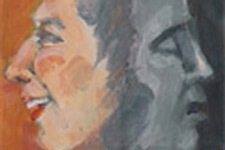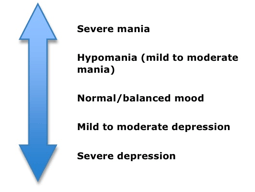In the past, bipolar depression was lumped in with regular depression. But a growing body of research suggests that there are significant differences between the two, especially when it comes to recommended treatments. Most people with bipolar depression are not helped by antidepressants. In fact, there is a risk that antidepressants can make bipolar disorder worse–triggering mania or hypomania, causing rapid cycling between mood states, or interfering with other mood stabilizing drugs.
Despite many similarities, certain symptoms are more common in bipolar depression than in regular depression. For example, bipolar depression is more likely to involve irritability, guilt, unpredictable mood swings, and feelings of restlessness. People with bipolar depression also tend to move and speak slowly, sleep a lot, and gain weight. In addition, they are more likely to develop psychotic depression–a condition in which they’ve lost contact with reality–and to experience major disability in work and social functioning.
Common symptoms of bipolar depression include:
|
|


